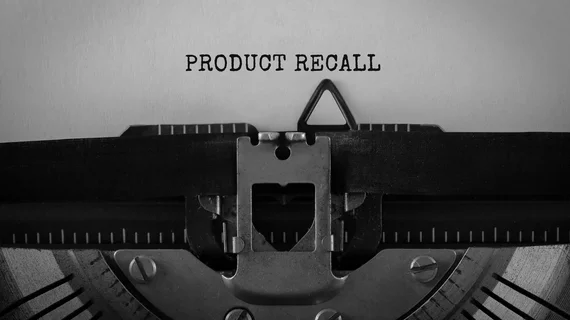FDA provides next steps in wake of blood test recall
After a Class I recall of nearly 8,000 blood tests used to detect myocardial infarctions (MIs), the U.S. Food and Drug Administration (FDA) is highlighting the importance of using alternative testing methods to ensure accurate results.
On July 17, the FDA announced that Quidel Cardiovascular Inc.—also known as QuidelOrtho—was recalling 7,799 blood tests after receiving multiple reports of inaccurate test results. The agency categorized the event as a Class I recall, which means using the devices in question “may cause serious injuries or death.”
There have been 41 customer complaints so far about the issue, but no injuries or deaths have been reported.
The FDA published a letter to healthcare providers on Wednesday, July 19, offering updated recommendations related to the QuidelOrtho recall. For example, the agency recommended that customers “immediately stop using” the recalled devices and begin using alternative methods to test whether patients face a heightened MI risk.
“If no alternative method is available, consider sending patients to another local testing site in which an alternate method is available,” the agency added.
In instances when no alternative testing methods or local testing sites are available, the FDA suggests healthcare providers flag “all negative results” as being potentially inaccurate until they receive accurate blood tests.
One key update in the letter is that QuidelOrtho has a limited quantity of unaffected devices on hand. Providers in need of those tests may directly reach out to the company.
“The FDA will continue to keep healthcare providers, laboratory personnel, facilities and the public informed if new or additional information becomes available,” the agency concluded.

